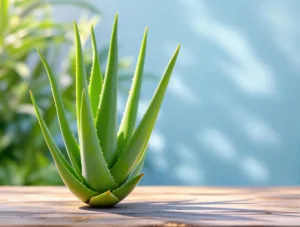Natural Hair Masks for Dandruff: Effective Remedies to Nourish Your Scalp
Introduction
Dandruff is a common scalp condition that affects millions of people worldwide, causing flaking, itching, and sometimes even hair loss. While commercial anti-dandruff shampoos can provide temporary relief, they often contain harsh chemicals that may strip the scalp of its natural oils, leading to further dryness and irritation. In contrast, natural hair masks offer a gentle yet effective solution to combat dandruff while deeply nourishing the scalp.
This comprehensive guide explores the best natural ingredients for treating dandruff, their benefits, and step-by-step recipes for homemade hair masks. Whether you’re dealing with mild flakiness or persistent scalp issues, these remedies can help restore balance, promote healthy hair growth, and leave your locks looking vibrant.
Understanding Dandruff: Causes and Symptoms
Before diving into treatments, it’s essential to understand what causes dandruff and how it manifests.
Common Causes of Dandruff
- Dry Scalp – Cold weather, dehydration, and excessive use of hot styling tools can lead to flaky skin.
- Seborrheic Dermatitis – An oily, irritated scalp caused by excess sebum production and fungal growth (Malassezia).
- Product Buildup – Residue from shampoos, conditioners, and styling products can clog hair follicles.
- Poor Diet – Nutrient deficiencies (especially zinc, B vitamins, and omega-3 fatty acids) can worsen scalp health.
- Stress & Hormonal Changes – These factors can trigger or exacerbate dandruff.
Symptoms of Dandruff
- White or yellow flakes on the scalp and shoulders
- Itchiness and redness
- Dry or oily scalp patches
- Temporary hair thinning (in severe cases)
Understanding the root cause of your dandruff will help you choose the most effective natural remedies.
Benefits of Natural Hair Masks for Dandruff
Unlike commercial products, natural hair masks provide multiple benefits without harmful side effects:
- Moisturizing & Hydrating – Ingredients like coconut oil, aloe vera, and honey prevent dryness.
- Antifungal & Antibacterial Properties – Apple cider vinegar, tea tree oil, and neem fight fungal infections.
- Exfoliation – Yogurt and oatmeal gently remove dead skin cells.
- Nutrient-Rich – Eggs, avocado, and fenugreek supply essential vitamins for scalp health.
- Reduced Inflammation – Aloe vera and turmeric soothe irritation and redness.
Top Natural Ingredients for Dandruff Hair Masks
1. Apple Cider Vinegar (ACV)
ACV balances the scalp’s pH, reduces fungal growth, and removes buildup.
Recipe:
- Mix 2 tbsp ACV with 2 tbsp water.
- Apply to the scalp, leave for 15 minutes, then rinse.
2. Coconut Oil & Tea Tree Oil
Coconut oil moisturizes, while tea tree oil has antifungal properties.
Recipe:
- Warm 3 tbsp coconut oil and add 5 drops of tea tree oil.
- Massage into the scalp, leave for 30 minutes, then shampoo out.
3. Yogurt & Lemon Juice
Yogurt contains probiotics that combat dandruff, and lemon juice exfoliates.
Recipe:
- Mix ½ cup plain yogurt with 1 tbsp lemon juice.
- Apply for 20 minutes before rinsing.
4. Aloe Vera Gel
Aloe soothes irritation and hydrates the scalp.
Recipe:
- Extract fresh aloe gel and apply directly to the scalp.
- Leave for 30 minutes before washing off.
5. Fenugreek Seeds
Fenugreek has antifungal properties and strengthens hair.
Recipe:
- Soak 2 tbsp fenugreek seeds overnight, blend into a paste.
- Apply for 30 minutes, then rinse.
6. Baking Soda
Baking soda exfoliates and reduces fungal growth.
Recipe:
- Mix 2 tbsp baking soda with water to form a paste.
- Gently scrub the scalp, leave for 5 minutes, then rinse.
Step-by-Step Guide: How to Apply Hair Masks for Best Results
- Patch Test First – Ensure you’re not allergic to any ingredients.
- Cleanse Your Scalp – Wash hair with a mild shampoo before applying the mask.
- Section Hair – Divide hair into sections for even application.
- Massage Gently – Use fingertips to work the mask into the scalp.
- Cover with a Shower Cap – This helps the ingredients penetrate better.
- Rinse Thoroughly – Use lukewarm water to avoid residue buildup.
- Follow with a Light Conditioner – If needed, use a natural conditioner to lock in moisture.
Additional Tips for Managing Dandruff Naturally
- Stay Hydrated – Drink plenty of water to keep your scalp moisturized.
- Eat a Balanced Diet – Include omega-3s, zinc, and vitamins A & E.
- Avoid Hot Showers – They strip natural oils from the scalp.
- Reduce Stress – Practice yoga or meditation to lower stress-related dandruff.
- Limit Harsh Hair Products – Sulfates and parabens can worsen flaking.
Conclusion: Embracing Natural Solutions for a Healthier Scalp
Dandruff can be frustrating, but natural hair masks provide a safe, chemical-free way to restore scalp health. By incorporating ingredients like apple cider vinegar, coconut oil, aloe vera, and yogurt into your routine, you can effectively reduce flakiness, soothe irritation, and promote stronger, shinier hair.
For best results, consistency is key—apply these masks 1-2 times per week and pair them with a healthy lifestyle. Over time, you’ll notice a significant improvement in scalp condition, proving that nature often holds the best remedies.
Have you tried any of these natural hair masks? Share your experiences in the comments below!









Add comment